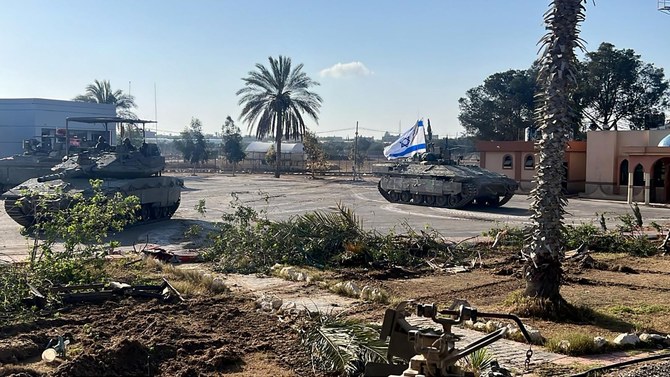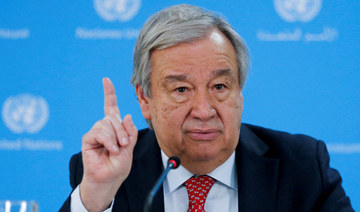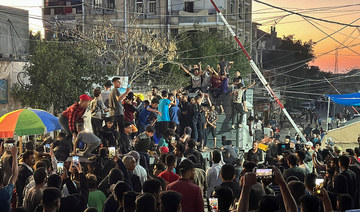JERUSALEM: A team of mid-ranking Israeli officials will travel to Cairo in coming hours to assess whether Hamas can be persuaded to shift on its latest ceasefire offer, a senior Israeli official said, reiterating the current proposal was unacceptable to Israel.
“This delegation is made up of mid-level envoys. Were there a credible deal in the offing, the principals would be heading the delegation,” the official told Reuters, referring to the senior officials from the intelligence services Mossad and Shin Bet who are leading the Israeli side.
The visit to the Egyptian capital will take place hours after Israeli tanks took control of the Palestinian side of the Rafah border crossing between Egypt and Gaza.
Israeli jets have carried out repeated strikes on eastern Rafah, the southern Gaza city where more than 1 million Palestinians displaced by the seven-month war have been sheltering.
Egypt’s state-aligned Al Qahera News TV reported that there were still efforts to contain the escalation between the two sides and said Egyptian officials had asked Israel to stop the Rafah operation immediately.
Hamas issued a statement saying the operation was designed to undermine ceasefire efforts.
The Israeli official, who spoke on condition of anonymity, said Israel’s demonstrated determination to move against Rafah had pushed Hamas into putting out its latest proposal hastily.
The proposal took the basic framework of a proposal from April 27, based around a halt in fighting and a return of some of the more than 130 Israeli hostages in exchange for Palestinian prisoners in Israel, and stretched it to “unacceptable extremes,” the official said.
However, another official said Hamas had agreed to the phased ceasefire and hostage release deal Israel proposed on April 27 with only minor changes that did not affect the main parts of the proposal.
The new demand would not allow Israel to veto the release of specific Palestinian prisoners, including Marwan Barghouti, a leader from the Fatah faction currently serving a life sentence for his role in mounting deadly attacks against Israelis.
“Hamas wants them all to be eligible and for Israel to have no say in the matter,” the official said.
It would also lift restrictions on the import into Gaza of so-called dual use materials that can be used for both civilian and military purposes. “Hamas says these should be allowed in for the rehabilitation of Gaza, but we know that their intention is to manufacture munitions.”
In addition, Hamas was now offering to release only 18 hostages in the first phase of a truce, instead of the 33 who would have been released under previous proposals, with the remainder to come in a subsequent phase.
“That means Israel would get only 18 hostages if it sticks to its refusal to call off the offensive,” the official said.
Rafah crossing closed
A Gaza border authority spokesperson told Reuters the Rafah crossing, a major route for aid into the devastated enclave, was closed because of the presence of Israeli tanks. Israel’s Army Radio had earlier announced its forces were there.
The United States has been pressing Israel not to launch a military campaign in Rafah until it had drawn up a humanitarian plan for the Palestinians sheltering there, which Washington says it has yet to see.
Israel said the vast majority of people had been evacuated form the area of military operations.
Instructed by Arabic text messages, phone calls and flyers to move to what the Israeli military called an “expanded humanitarian zone” around 20 km (12 miles) away, some Palestinian families began trundling away in chilly spring rain.
Some piled children and possessions onto donkey carts, while others left by pick-up or on foot through muddy streets.
As families dismantled tents and folded belongings, Abdullah Al-Najar said this was the fourth time he had been displaced since the fighting began seven months ago.
“God knows where we will go now. We have not decided yet.”
























